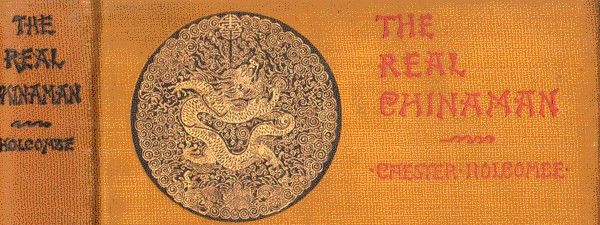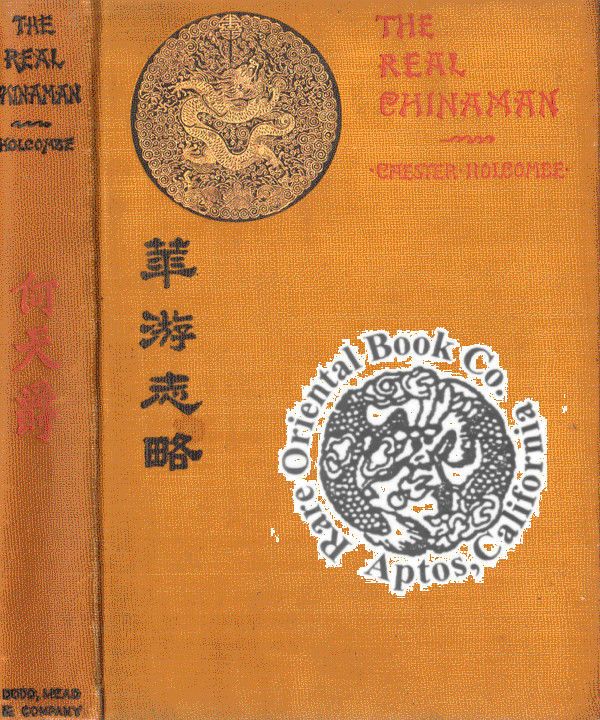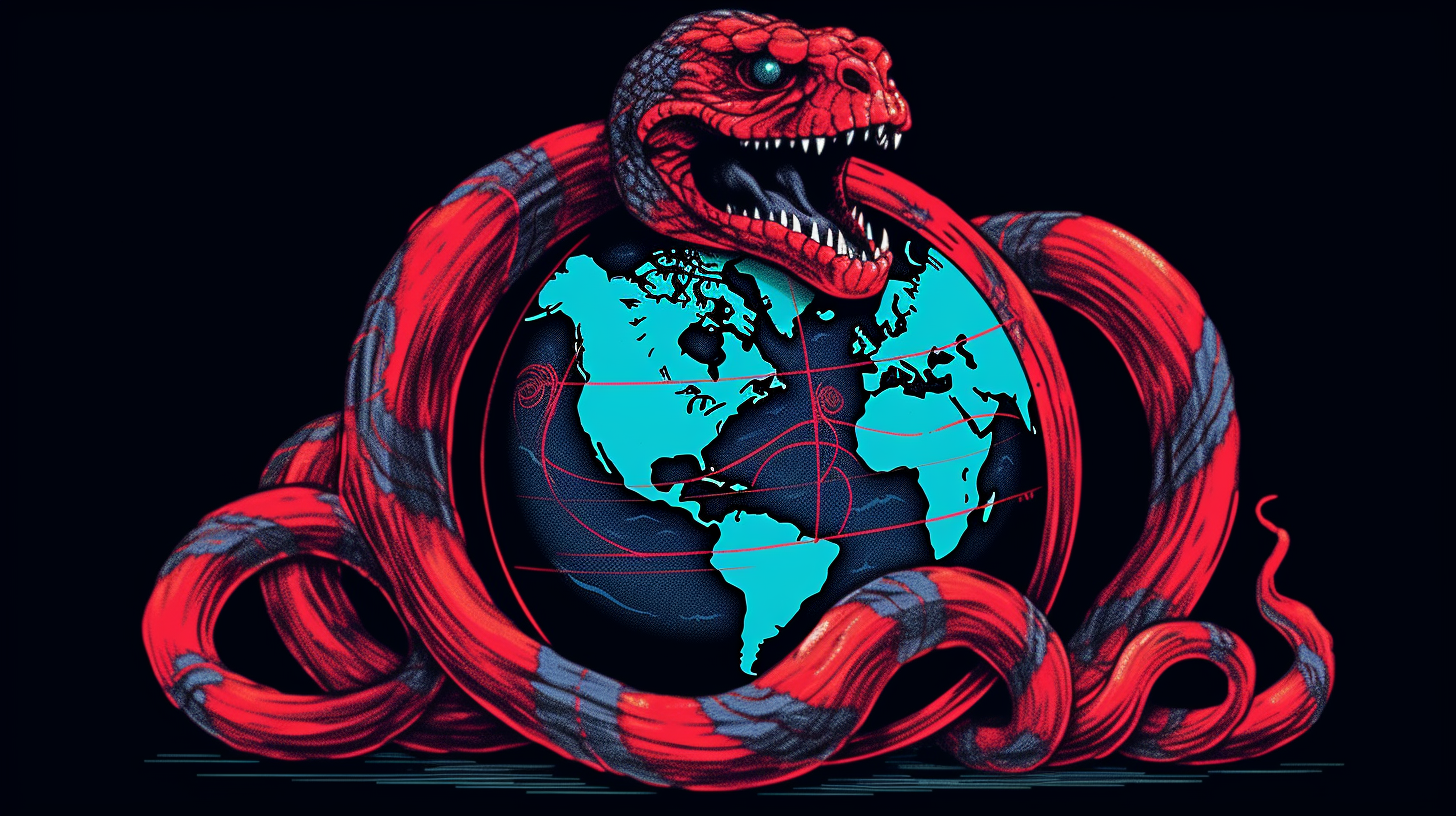'The Real Chinaman' Supplemental Review (Pt. 1)

This book is recommended by Miles Guo. China has undergone significant changes in its history, and this is reflected in its many facets and trajectory from the dynastic system all the way through present day. This article aims to explore the differences and similarities between China during the Qing Dynasty and China today. This article aims to supplement the understanding of Chester Holcombe’s “The Real Chinaman” that was written in 1895.

China has undergone significant changes in its history, and this is reflected in its many facets and trajectory from the dynastic system all the way through present day. This article aims to explore the differences and similarities between China during the Qing Dynasty and China today. We will explore how China's foreign relations, government, language, home life, social life, religions, superstitions, queues, courts of law, officials, people, education, and literature have changed and developed over time. This article aims to supplement the understanding of Chester Holcombe’s “The Real Chinaman” which was written in 1895 to bridge the understanding of China to Westerners.
Chester Holcombe was a distinguished American diplomat, author and missionary who spent much of his life in China. He was a graduate of Union College and prepared for college in the old academies in Webster and Sodus. He studied for the ministry but later went to China as a missionary under the American Board. He served as Secretary of the American Legation at Peking until 1884 and made various visits to China on commercial and financial business. He is the author of several books on China, including "The Real Chinaman" and "The Chinese Government". He has also contributed to newspapers, magazines and periodicals. He played a role in the negotiation of several treaties between the United States and China and was offered a decoration of high order by the emperor of China but declined the honor. He was a deep thinker, keen in his perceptions, and a master of pure English.
International Affairs:
During the Qing Dynasty (1644-1912), China's foreign relations were primarily based on the tributary system, which was a system of relations between China and other countries where foreign countries would send tribute to the Chinese emperor in exchange for trade and diplomatic relations. This tributary system placed China at the center of the international system, and other countries were seen as "vassal states." In the words of Chester Holcombe, author of “The Real Chinaman,” he mentions “it is the connection between the elder and younger brother.” The system was based on the Confucian notion of the "Middle Kingdom," hence the name “Zhōngguó” (中國), where China was seen as the cultural, political, and economic center of the world.
Today, China's foreign relations are much more complex, and the tributary system is no longer in place. China has become a major player in international politics and economics but has been deeply influenced by the Chinese Communist Party’s (CCP) rule. China has also become increasingly active in international organizations such as the United Nations, and it has been working to establish itself as a global leader.
China's Belt and Road Initiative (BRI), 一帶一路" (Yīdài yīlù), is one of the most significant examples of China's growing role in international affairs. Also known as the "Silk Road Economic Belt" and the "21st Century Maritime Silk Road" which is a development strategy proposed by the Chinese government to improve economic cooperation among countries along the proposed Belt and Road routes, the BRI is an infrastructure development project that aims to connect Asia, Europe, and Africa through a network of roads, railways, and ports. The project has been met with mixed reactions, with some praising its potential to boost economic growth and others criticizing it for increasing the CCP’s influence in other countries. Overall, the BRI has had a significant impact on global trade and infrastructure development, and it has reinforced China's position as a major player in the international arena.
Government of China:
During the Qing Dynasty, China was ruled by an absolute monarchy, with the emperor having complete control over the government. The emperor was considered the "Son of Heaven" and his rule was seen as divine. The government was divided into several branches, including the imperial court "朝廷" (cháo tíng), the central government "中央政府" (Zhōngyāng zhèngfǔ), and the local government "地方政府" (dìfāng zhèngfǔ). The emperor was assisted by a council of advisors, and the imperial examination system "科举制度" (kējǔ zhìdù), also known as the civil service examination, was used to select officials for government positions.
Today, China is a socialist state with a single-party system, the Chinese Communist Party (CCP) "中國共產黨" (Zhōngguó Gòngchǎndǎng) or Communist Party of China (CPC) holds power. The CCP was founded in 1921, and it came to power in 1949 after the Chinese Civil War. It is a Marxist-Leninist political party that seeks to establish a socialist society and eventually a complete communist society in China. The party's ultimate goal is to create a classless society in which the means of production are owned and controlled by the state and the working class, and its ideology is based on Marxism-Leninism, Mao Zedong Thought and Chinese characteristics socialism. The CCP is led by the General Secretary "總書記" (Zǒngshūjì), who is the highest-ranking official within the CCP. The President "總統" (Zǒngtǒng) of China is the head of state, and the Premier "總理" (Zǒnglǐ) of China is the head of government. The President is the ceremonial head of the state, while the Premier is the head of the government and is responsible for managing the day-to-day administration of the country. Xi Jinping is the current General Secretary of the CCP (who has taken an unprecedented third term this past year), the President of the People's Republic of China, and the Chairman of the Central Military Commission. As the leader of the CCP, Xi Jinping holds the highest office in the country and is the most powerful figure in Chinese politics.
As General Secretary, Xi Jinping is responsible for setting the overall direction and policies of the party, and for making key personnel decisions. He presides over the CCP's top decision-making body, the Politburo Standing Committee, and is responsible for coordinating the activities of the various factions within the party.
The CCP has a hierarchical structure, and the National Congress "全國大會" (Quánguó dàhuì) and the Central Committee "中央委員會" (Zhōngyāng wěiyuánhuì) are the highest bodies. The National Congress meets every five years and is responsible for electing the Central Committee, which is responsible for implementing the policies of the CCP. The Central Committee is made up of around 200 full members and alternate members.
The National People's Congress (NPC) "全國人民代表大會" (Quánguó rénmín dàibiǎo dàhuì) is the highest organ of legislative, or state, power, and it is responsible for making and amending laws, approving the budget, and electing the President and the Vice President, as well as other high-ranking officials. The NPC is made up of around 3,000 members, and it meets annually. The State Council "國務院" (Guówùyuàn) is the executive branch of government, and it is responsible for implementing the laws and policies of the NPC.
The judiciary is “independent,” and it is responsible for interpreting the law and ensuring that it is applied fairly. In China, the judiciary is composed of several different levels of courts and by a number of other legal institutions. The CCP's role in the judiciary is to ensure that the legal system serves the interests of the party and the state and is consistent with the party's political and ideological goals. This means that the judiciary operates under the guidance and supervision of the CCP and is expected to support the party's policies and decisions, including in the areas of political and ideological education, and to maintain social stability.
The independence of the judiciary is limited in China. The CCP and government officials have significant influence over the appointment of judges, the handling of high-profile cases, and the interpretation of laws, which has raised many concerns among some observers about the fairness of trials and the rule of law in China.
Chinese Language:
During the Qing Dynasty, Mandarin Chinese "官话" (guānhuà) was the official language, but there were also many regional dialects spoken throughout the empire. Mandarin Chinese, also known as standard Chinese or "普通话" (pǔtōnghuà), is based on the Beijing dialect and it was promoted as the official language in order to improve communication between different regions of the empire.
Today, Mandarin Chinese is still the official language in China, but there are also many regional dialects spoken throughout China. The most widely spoken dialects are Cantonese "粵語" (yuèyǔ), Shanghainese "上海話" (shànghǎihuà), and Hokkien. 閩南語" (mǐnnán yǔ) Pinyin, a system of romanization for Chinese, is widely used in education and media. Pinyin uses the Roman alphabet to represent the sounds of Chinese characters, it helps Chinese speakers to learn English and other foreign languages.
Mandarin Chinese is also spoken in Taiwan and Singapore, and it is one of the United Nations' six official languages. It is also widely studied as a second language around the world.
It is worth noting that while Mandarin is the official language in China, there are also other languages spoken in China, such as Tibetan, Uyghur, Mongolian, and Korean. These languages have their own writing systems and have their own specific cultures, customs and traditions.

Thank you for reading, all are welcome to discuss or correct any mistakes in this article, or express your opinions, in the comments!
Gettr: @pistachiomygod
Gettr: @holynuts
Check out the live stream discussion of Chapters 1, 2, & 3 on GETTR



